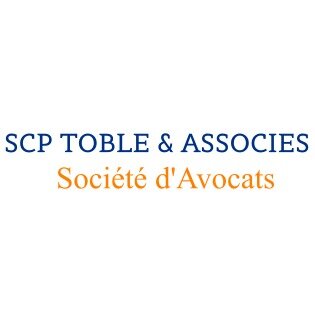Best Faith-Based Law Lawyers in Togo
Share your needs with us, get contacted by law firms.
Free. Takes 2 min.
Or refine your search by selecting a city:
List of the best lawyers in Togo
About Faith-Based Law in Togo
Faith-Based Law in Togo refers to the intersection of religious tenets and law, where religious values influence legal practices and decisions. Togo is a religiously diverse country with a significant portion of the population practicing Christianity, Islam, and indigenous beliefs. Faith-Based Law considerations often arise in family law, inheritance issues, and community-based decisions where religious customs might be predominant. As a result, legal processes sometimes integrate religious guidelines, particularly where state legislation provides flexibility or recognition of religious practices. Understanding Faith-Based Law requires awareness of both the secular legal frameworks and the religious doctrines pertinent to specific communities and situations.
Why You May Need a Lawyer
Individuals may seek legal advice in Faith-Based Law for various reasons including:
- Marriage & Divorce: Navigating marriage contracts or divorce proceedings under religious norms coupled with national law.
- Inheritance & Wills: Addressing disputes or clarity on inheritance where faith-based practices dictate the division of property.
- Child Custody: Determining the custodial rights influenced by religious principles and aligning them with national laws.
- Commercial Transactions: For businesses run under religious guidelines, understanding responsibilities and rights within the secular legal system.
- Community Conflicts: Resolving disputes where community decisions are largely influenced by religious doctrines.
Local Laws Overview
Togo operates under a secular constitution, but there are areas where religious practices significantly influence the legal outcomes. Key aspects include:
- Family Law: The state recognizes customary and religious marriages when duly registered, influencing issues like dowry and polygamy under specific religious doctrines.
- Inheritance: The integration of traditional and religious rules with civil law is common, although civil law is the fallback in case of disputes.
- Religious Institutions: Religious organizations must operate under specific guidelines that align with national law, though they often govern internal matters by their doctrines.
Frequently Asked Questions
1. What is Faith-Based Law?
Faith-Based Law refers to legal principles that are influenced by religious beliefs and practices, particularly in personal and family matters.
2. Is Faith-Based Law legally binding in Togo?
In certain matters like marriage and inheritance, religious practices can have legal recognition if properly documented and registered with secular authorities.
3. How does Togo handle legal disputes with religious components?
Legal disputes with religious elements are often resolved by balancing religious doctrines and secular legal standards, sometimes involving customary courts.
4. Can religious marriages be legally recognized?
Yes, if they are registered with the civil authority, religious marriages can be recognized under Togolese law.
5. What role do customary laws play in Togo?
Customary laws, often aligned with religious practices, play a significant role in areas like marriage, inheritance, and community leadership.
6. Do all communities in Togo follow the same religious laws?
No, religious laws can vary significantly between communities and religious groups within Togo, influenced by their religious texts and traditions.
7. Are divorces under Faith-Based Law recognized?
Divorces conducted under religious principles may be recognized if they meet the legal standards set by the national family law.
8. Can I appeal a religious court decision?
Yes, decisions from religious or customary courts can be appealed in the secular legal system, subject to specific circumstances and procedural rules.
9. Is child custody influenced by Faith-Based Law?
Religious law can influence child custody decisions, but they must be in the best interest of the child as interpreted by national law.
10. How are conflicts resolved between religious and national laws?
Conflicts are typically resolved by prioritizing national legislation while accommodating religious practices deemed consistent with public policy.
Additional Resources
For further assistance, consider reaching out to the following:
- Ministry of Justice in Togo: Provides information on how national laws are applied alongside customary practices.
- Religious Councils: These entities can offer guidance based on specific religious laws and practices.
- Legal Aid Centers: These centers can provide free or reduced-cost legal advice and representation.
- Non-Governmental Organizations: NGOs focused on human rights can offer assistance on matters where religious and human rights law intersect.
Next Steps
If you require legal assistance in Faith-Based Law, consider these steps:
- Identify the Nature of Your Issue: Determine whether the issue is primarily religious, civil, or a combination of both.
- Consult with a Lawyer: Seek a lawyer who specializes in Faith-Based Law or has experience with the intersection of religious and civil law.
- Gather Documentation: Collect any relevant legal, religious, or customary documents that may pertain to your issue.
- Engage with Relevant Religious Authorities: If applicable, these entities can offer guidance or mediation based on religious doctrines.
- Consider Alternative Dispute Resolution: Methods such as mediation can be effective in resolving disputes involving Faith-Based Law.
Lawzana helps you find the best lawyers and law firms in Togo through a curated and pre-screened list of qualified legal professionals. Our platform offers rankings and detailed profiles of attorneys and law firms, allowing you to compare based on practice areas, including Faith-Based Law, experience, and client feedback.
Each profile includes a description of the firm's areas of practice, client reviews, team members and partners, year of establishment, spoken languages, office locations, contact information, social media presence, and any published articles or resources. Most firms on our platform speak English and are experienced in both local and international legal matters.
Get a quote from top-rated law firms in Togo — quickly, securely, and without unnecessary hassle.
Disclaimer:
The information provided on this page is for general informational purposes only and does not constitute legal advice. While we strive to ensure the accuracy and relevance of the content, legal information may change over time, and interpretations of the law can vary. You should always consult with a qualified legal professional for advice specific to your situation.
We disclaim all liability for actions taken or not taken based on the content of this page. If you believe any information is incorrect or outdated, please contact us, and we will review and update it where appropriate.
Browse faith-based law law firms by city in Togo
Refine your search by selecting a city.










